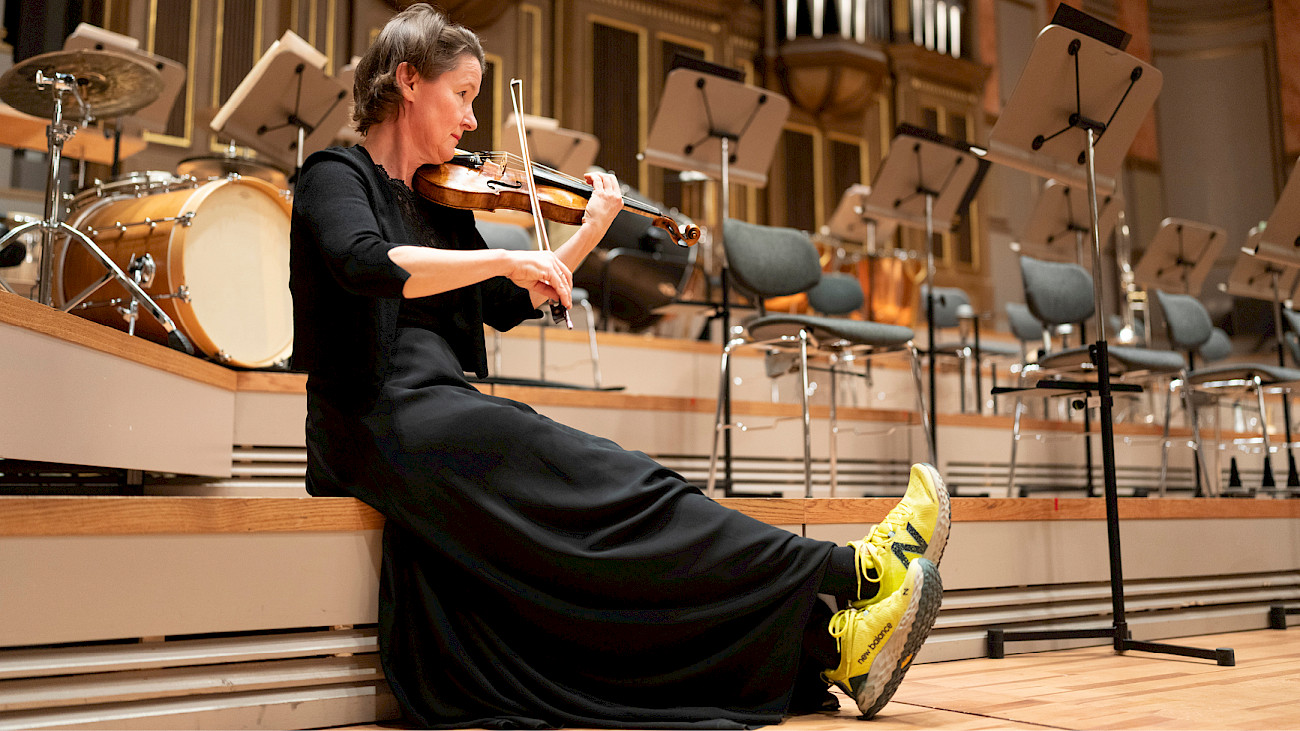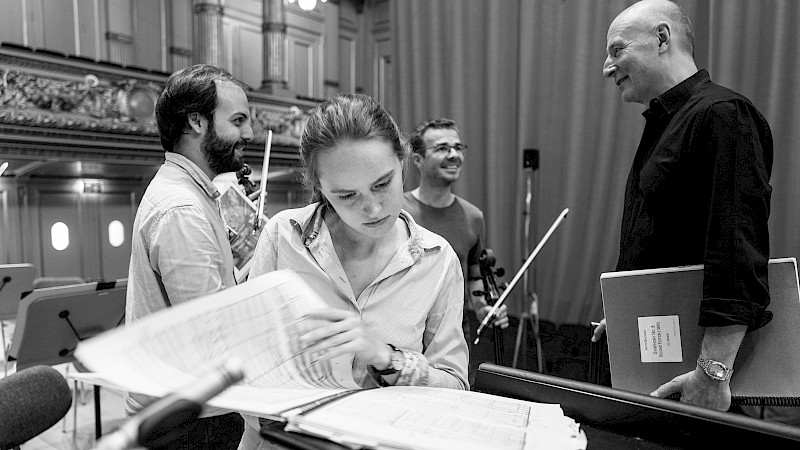
They take care of dos and don'ts
If the orchestra also has a convincing overall visual appearance, then this is not least thanks to the use of a violin and horn quartet.
What does the DO do? The abbreviation stands for "Duty Orchestra Board", and if you read it in English, it certainly fits the remit of this four-person committee: it's all about dos and don'ts, rules and compliance with them, dress codes and mobile phone use.
"We're actually like the orchestra police," says horn player Paulo Muñoz-Toledo. Violinist Ulrike Schumann-Gloster shakes her head; she wants nothing to do with the police and sees herself more as a curator: "We help to ensure that the framework for the music is right, that the team performance is emphasised and that the orchestra is perceived as a whole, not just in terms of sound but also visually." The two agree that this job, which they share with violinist Isabel Neligan and horn player Robert Teutsch, is important – but not only pleasant.
The dress code, in particular, is a subject of constant discussion in the orchestra and behind the scenes, at times quite lively. What does "sophisticated streetwear" mean, as is required for the lunch concerts? And how elegant should the evening dress worn by the musicians in the subscription concerts be? The room for interpretation is limited by numerous specifications. For example, men know exactly when to wear patent leather shoes and when not to; and for women's evening wear, the length of the sleeves (at least to the elbow), the fabric quality (not T-shirt-like), the shoe shape (closed) and other details are so precisely specified that it is not so easy to find something suitable that also offers sufficient freedom of movement. Nevertheless, there are always situations in which a DO has to decide what works and what does not.
This requires tact, goodwill, "a good mix of directness and respect", as Paulo Muñoz-Toledo puts it. "If we want to ensure that the overall picture is right, we have to do it in a way that doesn't disrupt cohesion on another level," adds Ulrike Schumann-Gloster. In other words, they have to formulate their concerns in such a way that they can subsequently interact with the colleagues concerned without any problems, "otherwise the whole thing would be counterproductive".
The fact that many points are a matter of interpretation makes the job of the DO group chosen by the orchestra both more difficult and easier. More difficult because you can't always rely on clear rules: "We have to be careful not to use our personal views as a yardstick," says Paulo Muñoz-Toledo. And it's easier because you can sometimes turn a blind eye. Ulrike Schumann-Gloster mentions the ban on mobile phones: "We're not actually allowed to take smartphones on stage during rehearsals. But if, for example, parents of young children still have one in their pocket, this is tolerated as long as they are concentrating on their performance."
In clear cases, such as when someone arrives late for rehearsal, the DO issues a reprimand; three reprimands per season result in a fine of 100 francs, which goes into the orchestra's coffers. The orchestra doesn't get rich this way, but nobody is sad about it – least of all the DO quartet.
Translated with DeepL.com





